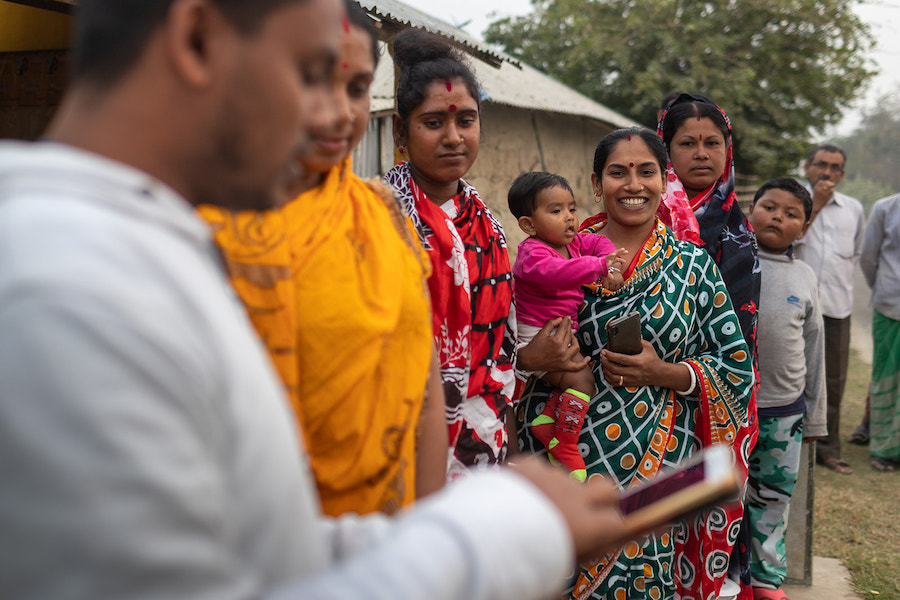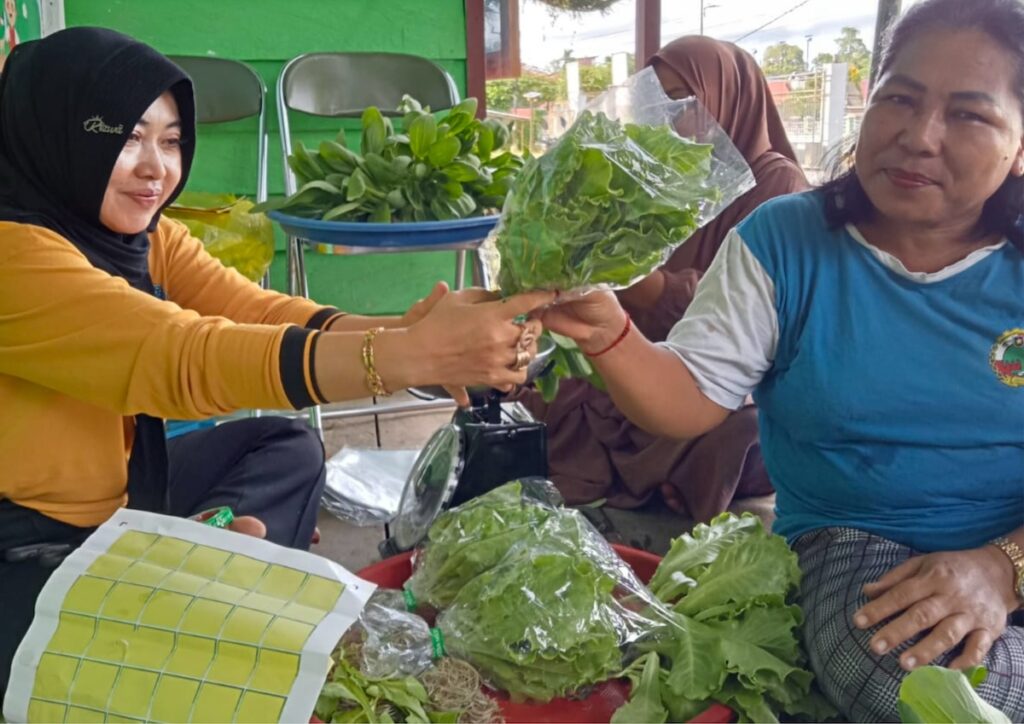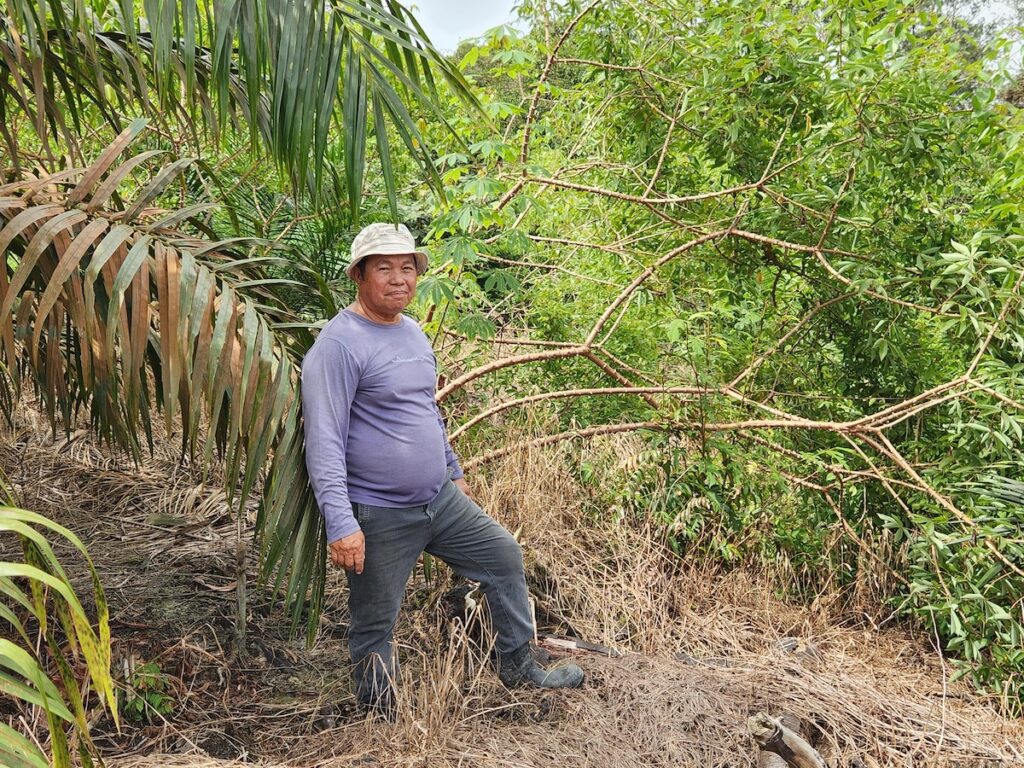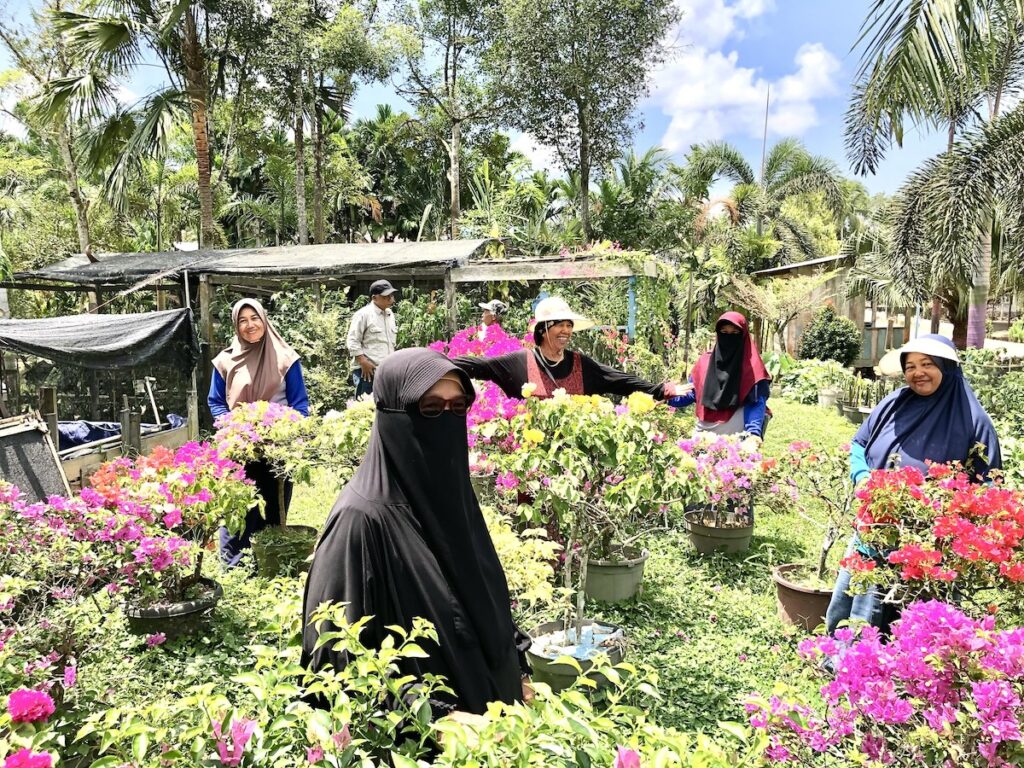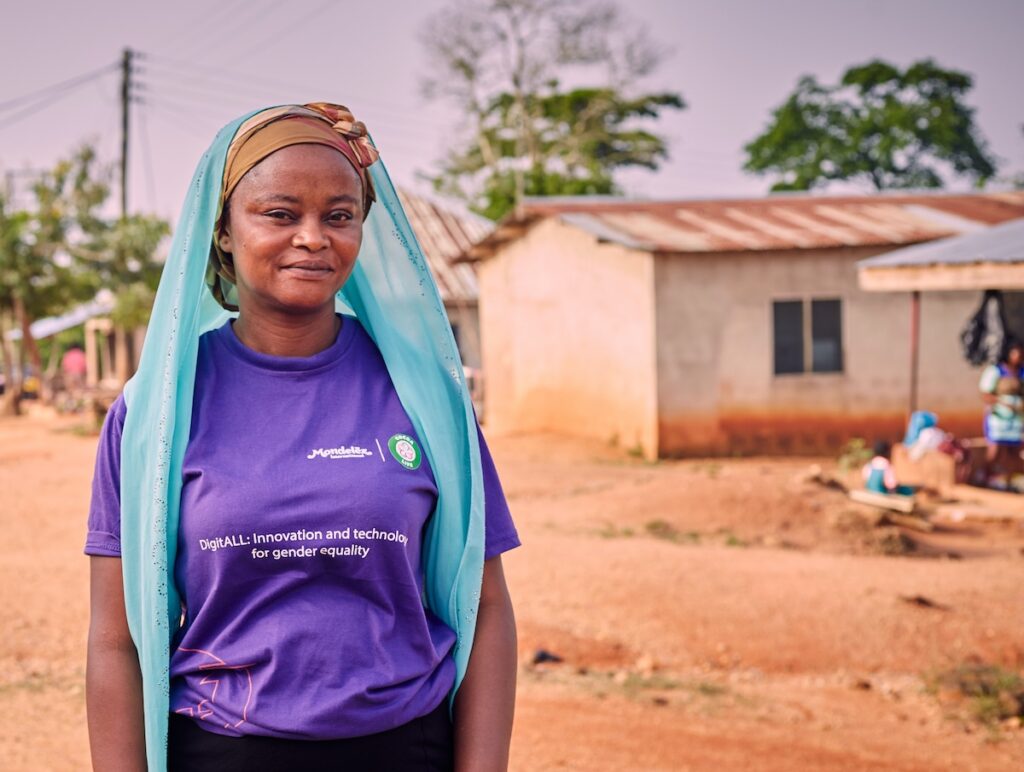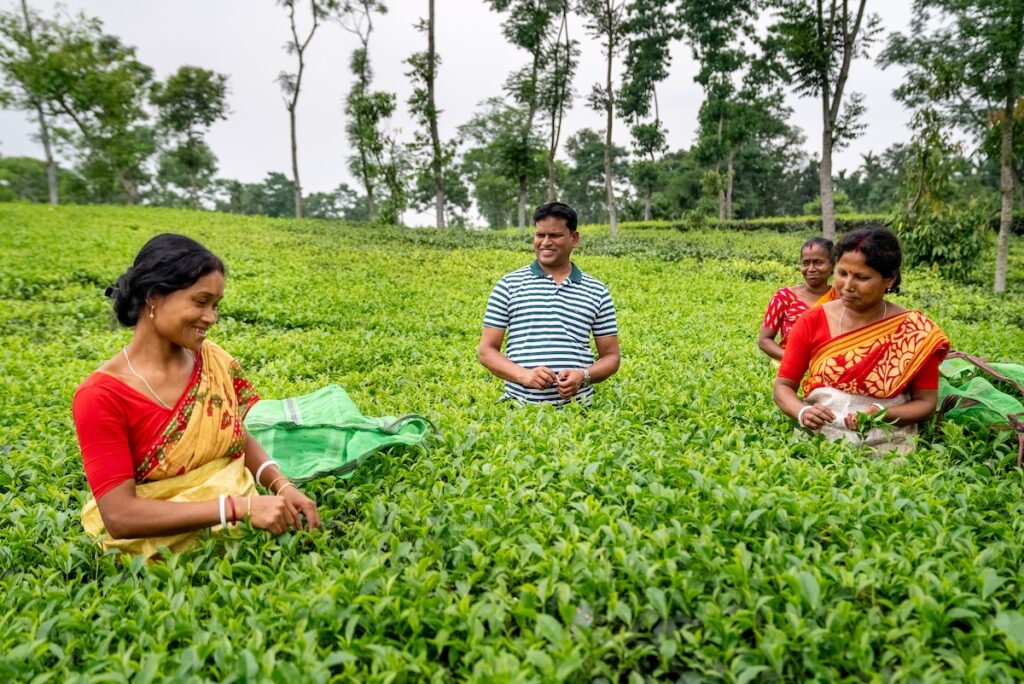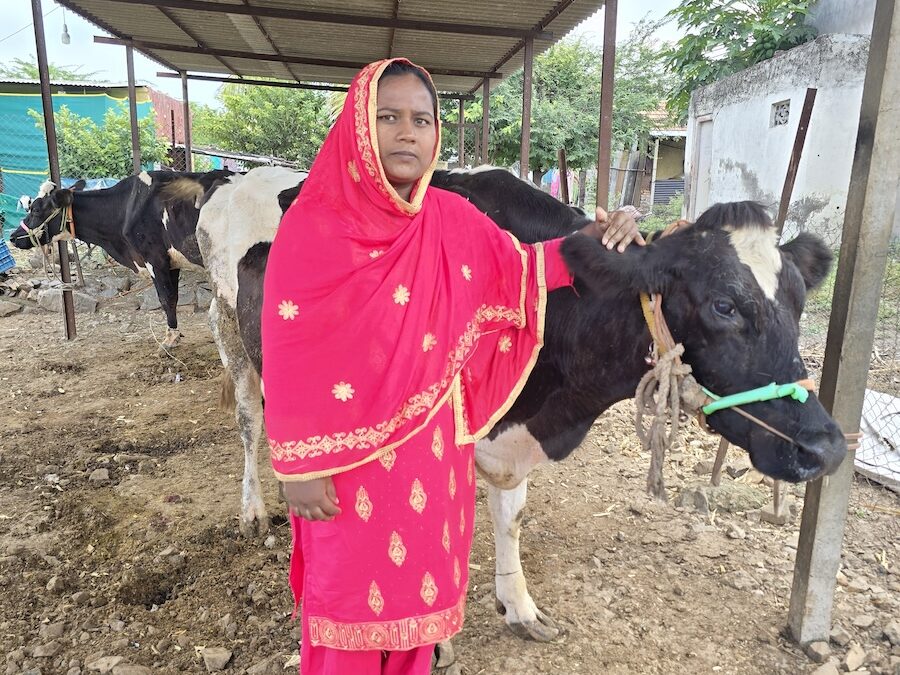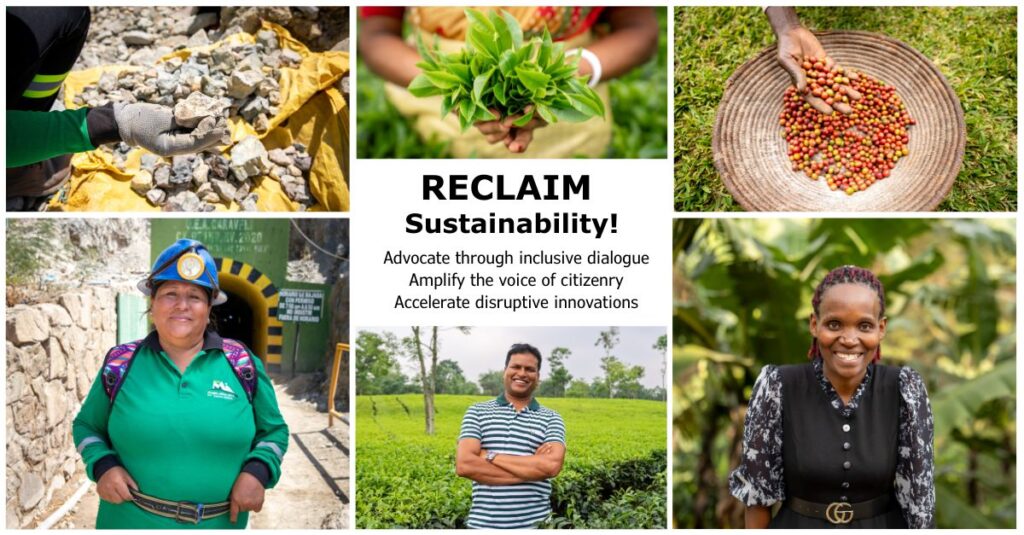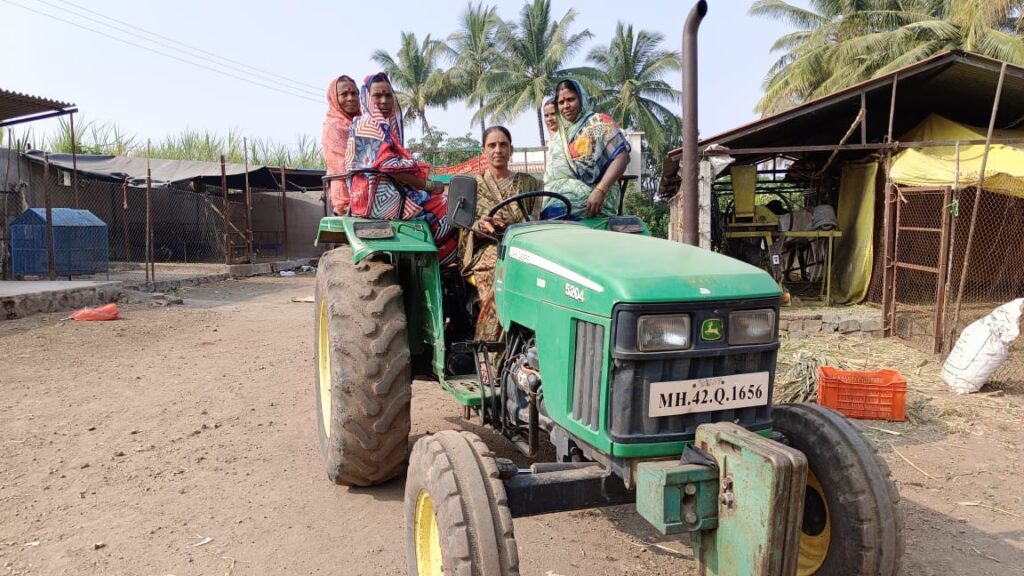Typically, women have little control over the money earned through their labor, and few have access to information that could help them improve their farming practices. The ‘Digital Inclusion and Empowerment for Women Dairy Farmers in Bangladesh’ programme (February 2020-June 2022) funded by DAI under USAID Women Connect Challenge Project is supporting women farmers in their journey.
In Bangladesh, 12,000 women dairy farmers in Khulna and Jashore districts of Bangladesh, have been connected to formal supply chains through access to digital tools, knowledge about good dairy practices, and access to digital financial transactions.
Solidaridad supported the development of a commercially viable smallholders’ dairy business model with access to quality breeding, feed, and veterinary services. Support for self-employed micro, small and medium entrepreneurs (MSMEs) has extended the business model to provide farmers with access to quality inputs, milk aggregation and access to formal markets.
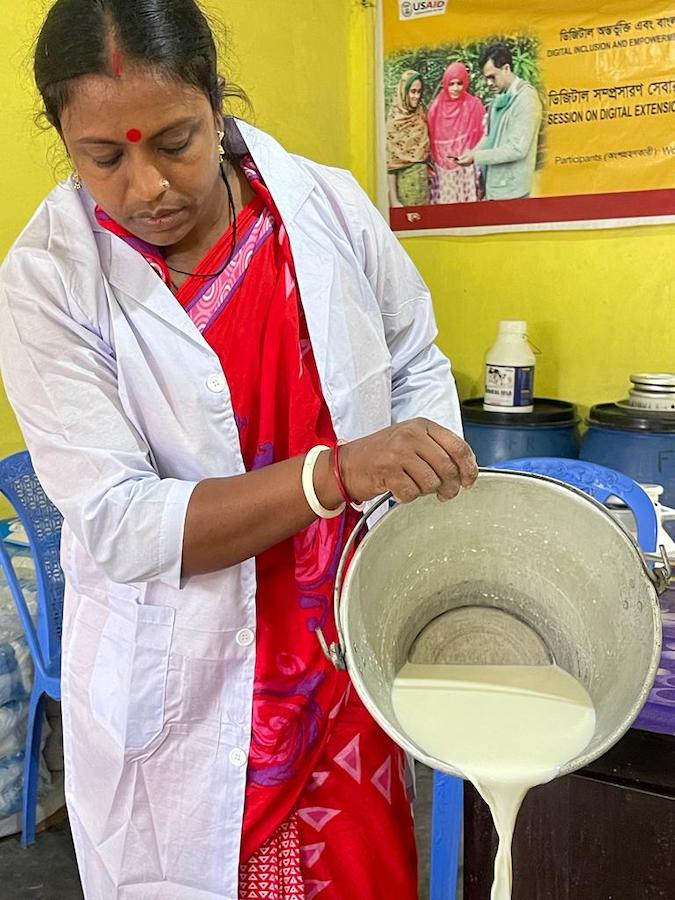
Meet Nivedita, Dairy Farmer & Entrepreneur
Thirty eight-year-old Nivedita Vishwas, one of the small entrepreneurs to receive training, runs a milk collection centre (MCC) in Pariyali village of Jashore district in Bangladesh. A mother of two and a dairy farmer herself, Nivedita has 350 women dairy farmers enrolled in her collection centre, with 40-50 farmers supplying milk daily.
Nivedita uses the i2i app, a mobile tool developed by Solidaridad, that helps collection centres and dairy farmers track milk sales and manage payments. She uses the app to regularly communicate with women farmers enrolled with her collection centre sharing information on quantity and quality of milk, and payment information.
Payments are sent directly to the farmers’ digital wallet or bank account on a weekly basis, helping ensure that women have control of the income they generate. This financial inclusion component has provided much-needed transparency for women dairy farmers and entrepreneurs, like Nivedita.
The transparent digital system has helped me gain the trust of the farmers. Today, every woman dairy farmer in my village sells me milk and buys inputs from my shop.
Nivedita Vishwas discussing the digital solutions powering her dairy business.
Bridging the Digital & Financial Divide
Under the project, Solidaridad along with USAID has worked on digital interventions tailored to the needs of women dairy farmers.
- The Interactive Voice Response (IVR) technology enables women farmers to use basic mobile phones to access information they need to better manage their dairy farms and improve milk production. The farmers receive dairy farming advisory through texts and voice messages or by simply dialing the designated hotline number of the IVR system.
- The i2i app, a digital application, provides text messages to farmers with information regarding milk sales. Dairy farmers can set up their own profiles on the app and receive daily alerts about the quantity, quality and price of the milk they sell.
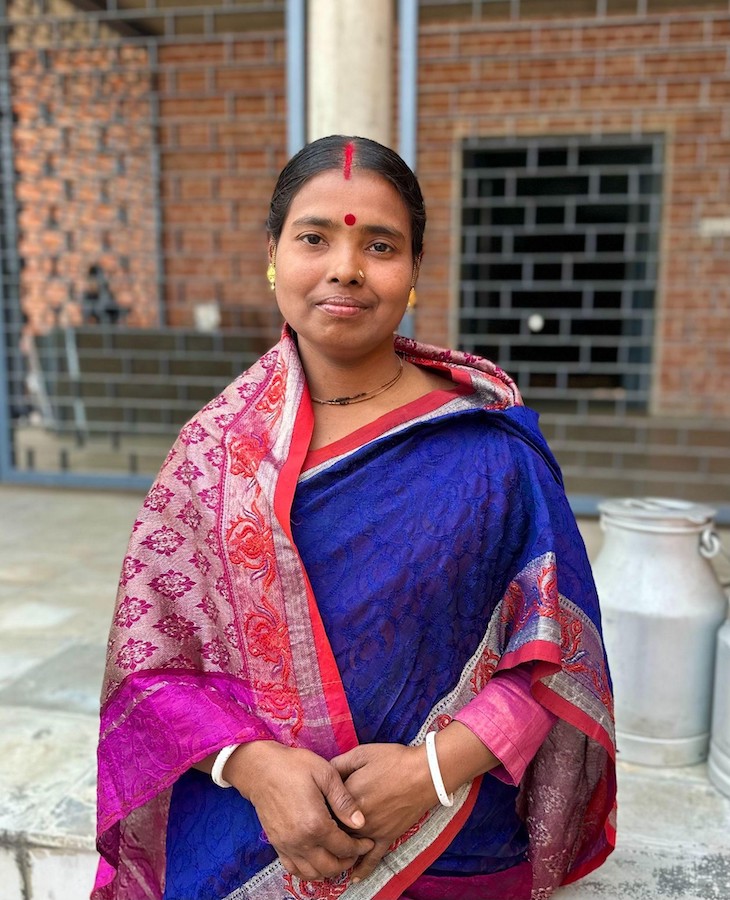
The direct access to money has given Archana Rani, a dairy farmer in Khulna, a greater say in the money matters in her family.
“I come to the collection centre twice everyday to sell milk, and make around 74 taka per liter based on the butterfat content of the milk. The payment is instantly transferred to my bank account and I can keep track of my finances through digital banking at any time,” she says. A proud owner of four cows, Archana says she managed to save enough to buy another cow, besides contributing to her children’s education.
The Outcomes
Some of the key achievements of the project are:
- 12,000 women dairy farmers supported through IVR services – 94% have enhanced their knowledge on good dairy practices, including feed management, feeding processes, green grass cultivation, shed design and management, vaccination, and artificial insemination.
- Overall milk production has increased 23%; incomes have increased by 43%
- 5,812 women farmers registered on the i2i app and 4,499 of them received training on how to use the digital payment system and realized the benefits of digital financial inclusion.
- 50 milk collection centre operators (45 male /5 female) completed training in operating the i2i app and the bKash system.
- 691,216 litres of milk were sold by women dairy farmers, with a value of 2,7140,981 taka; the average milk price was 39.26 taka per litre
Financial inclusion is also helping women farmers access government subsidies andaccess loans. Further, with control over their own money, they are now able to pay electricity bills or even send money to their family members.
When a woman has access to finance, she becomes empowered because she can make all decisions about the use of income and fulfill her wishes.
Priyanka Mondal, a dairy farmer in Khulna district, Bangladesh
Change That Matters
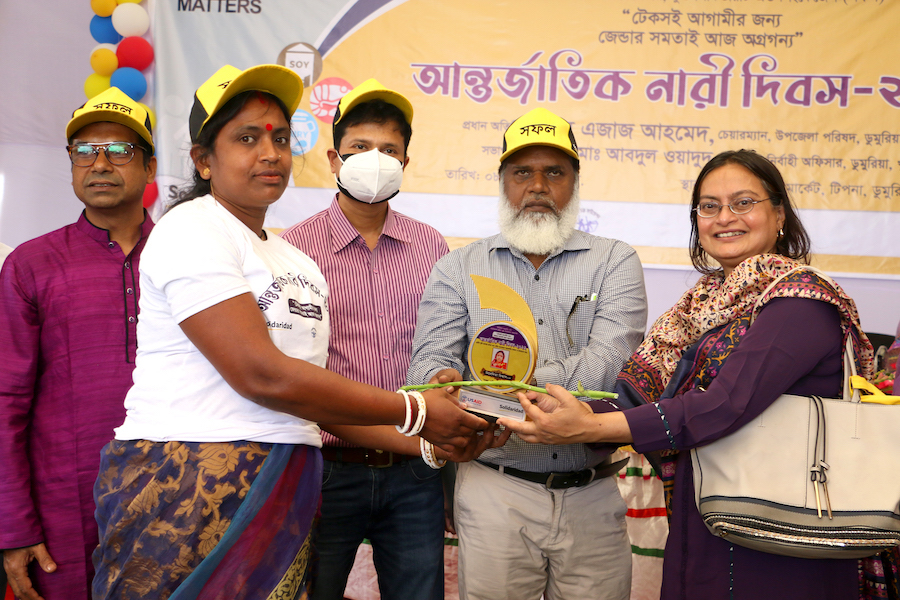
At the community level, access to information through digital tools has shifted gender dynamics. For Aporna Rani Singho, a 27-year-old dairy farmer in Khulna, the digital advisories empowered her.
“Due to domestic responsibilities, we did not get the opportunity to attend the training, but because of digital advisory services I am now capable and independent enough to manage my dairy farm. I am also being acknowledged more by my husband and family members,” she says.
“Nowadays my wife is more capable than me to make decisions regarding managing the dairy farm,” adds her husband, Dilip Kumar.
Solidaridad’s inclusive dairy model is a major contributor to transformation of the smallholder dairy sector in Bangladesh. The digital advisory and payment system has strengthened women’s role in decision-making and their status in household well-being.
Other outcomes:
- Nearly 75% women dairy farmers have savings; 65% women have taken loans from different sources.
- 99% women farmers are making decisions about dairy farming, such as milk sales, cow shed management, feeding etc.
- 98% women farmers are making decisions about the choice of household food consumed.
- 97% women farmers are making decisions regarding their children’s education and the marriageable age of their children.
Solidaridad has seen how digital integration can trigger efficient advisory services, which leads to sustainable practices, fairer value distribution, transparency and traceability and a more level-playing that helps women take control over income and fuel inclusive growth.
Selim Reza Hasan, Country Manager, Bangladesh.

